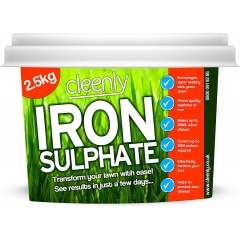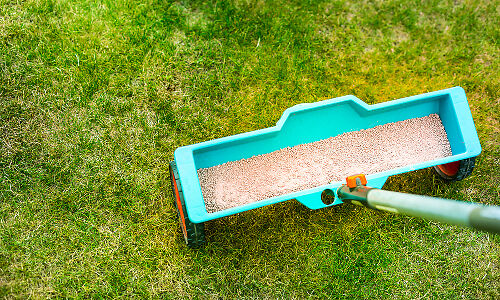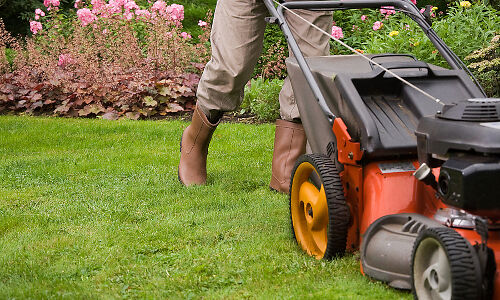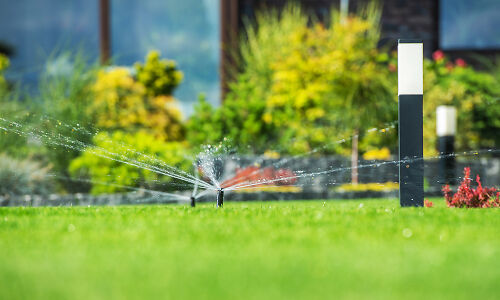
February 22nd, 2023 by
Your lawn is an important part of your home. It provides a beautiful and inviting space for you, your family and your guests to enjoy. A well-maintained lawn will help you save money on maintenance costs by reducing the need for frequent trips to the garden centre or nursery.
In addition to looking good, having a healthy lawn can also save you money on water bills because it doesn't require as much watering compared to other types of grasses such as Bermuda or St Augustine grasses. A healthy lawn will also be more resistant to pests like grubs or disease organisms that attack plants such as fungus which causes brown patches on the leaves (also known as "damping off").
Maintaining your lawn
While your lawn is pretty good at taking care of itself definitely needs some help to make sure it remains strong and looks its best, after all, your lawn is susceptible to many external factors that can affect its overall health and appearance. To keep your grass looking its best, you'll need to:
- Water regularly. If you're not sure how often to water your lawn or what kind of soil type it has (soil type affects how much water is needed) you can purchase soil testing kits online - that way you will have a full breakdown of your soil and a better understanding of its needs.
- Fertilize every spring before the mowing season begins. This will help feed the roots of each blade so they can grow strong and healthy all summer long while keeping it well-protected during the colder months.
- Mow regularly at least once every two weeks during spring and summer months--more often if necessary based on growth rate and keep mower blades sharpened so they cut evenly across the grass blade rather than chopping into it like scissors would do; this will help reduce damage to the roots when they grow back after being cut off at an angle by dull blades
- Trim around trees and shrubs regularly with sharp tools like pruning shears or loppers; this prevents weeds from taking over while allowing air circulation between plants so they don't get too hot during hot weather
Watering your lawn
Watering your lawn is one of the most important aspects of lawn care, but as all lawns are different there is no set standard on the correct amount of water to use or the frequency, however, a few things to keep in mind are:
- Water your lawn when it needs it, not on a set schedule. Sometimes your lawn will require more or less water depending on factors such as weather. It's just as important to ensure you do not over-water your lawn.
- So when should you water your lawn? You should check for dry spots in the morning or evening. If you see any, then you should water the area by hand with a hose or sprinkler until the ground is wet down about 1/2 inch deep (about 10 minutes). If you don't see any dry spots after watering, then wait another few days before checking again.
- How often should I water my yard? There are many factors that determine how often you need to water such as temperature and rainfall as mentioned above but until you get more familiar with the process of checking your grass, generally speaking, most yards will need between 1/2"-1" per week during spring through fall months depending on soil type and grass variety planted in them.
Use fertilizers and lawn feed to care for your lawn
Fertilizers are a great way to improve the health of your lawn. There are many different types of fertilizers and lawn feeds and it's important to use the right one for your lawn. Grass needs a healthy balance of Nitrogen, Phosphorus and Potassium in order the thrive and remain healthy but why? Well, each element serves an important job:
- Nitrogen Fertilizer - These fertilizers are an excellent source of nutrients for your lawn. It will promote stronger and thicker grass that is more resilient to the effects of drought so is perfect for dryer atmospheres.
- Phosphorus Fertilizers - phosphorus fertilizers such as iron sulphate promote vigorous root growth and strengthen the root making it easier for your lawn you absorb nutrients from the soil and water.
- Potassium Fertilizers - Potassium will help to strengthen cell walls in each blade of grass making it easier for water to circulate, this in turn helps your lawn protect itself against drought, fungi and lawn disease.
NPK Fertilizers are incredibly effective and are a good choice for beginners as it contains a percentage of everything your lawn needs in order to become stronger, healthier and greener! Most NPK fertilizers will give a percentage of each element on their ingredients list too so you can choose the type that will benefit your lawn individual needs the most.
Iron sulphate is also a very popular choice when it comes to lawn feed due to its ability to both strengthen each blade of grass and help to give it a luscious green colour. This makes it an excellent choice for those lawns that are lacking in Phosphorous.
As mentioned earlier in this blog, if you are unsure what it is your lawn requires then using a soil testing kit will be the best way to shed some light and allow you to pick the most suitable products.
Cleenly 2.5KG Iron Sulphate Price: £13.96
Seasonal lawn care
The needs of your lawn will change depending on the season. For example, even though winter may seem like a time of respite from yard work, there's actually more to do than you realise. Using fertilizers that are high in nitrogen will help your grass to absorb nutrients and continue to grow even in winter when it would otherwise be dormant, and weeding during this time is also important as weeds will still germinate during this time and then begin to grow in spring, so keeping on top of it will make your spring lawn work that much easier.
Fall sees cooler weather, shorter days and fewer insects making it easier to care for your lawn in preparation for winter. A healthy, well-maintained lawn can help prevent erosion and flooding by absorbing water from heavy rains or melting snow. Keeping your soil moist will also keep disease-causing organisms at bay by reducing their ability to reproduce quickly enough to overwhelm an otherwise healthy plant community. So it's important to keep up with watering, weeding and any lawn feeds during this time to build up nutrients needed by plants during dormancy so that they'll have plenty stored up when spring arrives again next year. It's also important not just because of its immediate benefits but also because it helps protect against some types of pests like grubs which eat roots underground during cold seasons when they're not busy eating our gardens' green leaves above ground level.
Spring as we all know is the time when our gardens really start to bloom, during this time you may find your lawn requires more care, you may need to mow more regularly, keep up with weeding or decrease the amount of time spent watering your lawn due to wetter weather conditions. It is also a great time fertilizer as the damp conditions will allow the soil and in turn your grass to absorb nutrients more quickly.
If you have been taking good care of your lawn then you should find it is well-protected from the dangers of summer. In particular drought, it's important to keep up with watering and you may require more water during very warm temperatures. If fertilizers have been applied well throughout the seasons then you should really start to see the benefits during summer thanks to the increased amount of sunlight helping to nourish your lawn. However, it is also important to note that applying fertilizers and lawn feeds during high summer temperatures is not always recommended as high temperatures and a lack of water may cause your grass to become scorched and dis-coloured. So wait for cooler days and use plenty of water if applying products during this time.
The perfect lawn will not happen overnight and while it can seem like a daunting task when first getting started, applying a little bit of hard work to your lawn care is very rewarding. Not only will you create a beautiful and vibrant outdoor area to enjoy with loved ones but also by creating a healthy lawn and optimum growing conditions maintaining your perfect lawn will become less work in the long run!

Comments
Leave a reply
Your e-mail address will not be published. All fields are required




